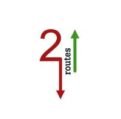A trading journal is a systematic record of your forex trades, acting as a vital tool for any serious trader. It allows you to track your performance, analyze your strengths and weaknesses, and ultimately improve your trading decisions.
Here’s a breakdown of what a trading journal is and why it’s important:
What is a Trading Journal?
Think of it as a logbook for your trades. It documents details about each trade you execute, including:
- Date and Time: When did you enter and exit the trade?
- Market: What currency pair or instrument did you trade?
- Trade Direction: Did you buy (long) or sell (short) the instrument?
- Entry and Exit Price: At what price did you enter and exit the trade?
- Trade Size: How much capital did you risk on this trade (lot size)?
- Indicators/Signals: What technical or fundamental factors triggered your entry and exit?
- Risk Management: What stop-loss and take-profit orders did you use?
- Notes: Any additional observations or thoughts about the trade (emotions, news events, etc.)
Benefits of Keeping a Trading Journal:
- Improved Performance: By reviewing your past trades, you can identify recurring mistakes and areas for improvement. You can see what strategies worked well and which ones need adjustments.
- Enhanced Discipline: Journaling keeps you accountable for your trading decisions. It encourages you to stick to your trading plan and avoid impulsive trades based on emotions.
- Emotional Awareness: Journaling your emotions during trades helps you understand how your feelings impact your decisions. You can learn to manage emotions and avoid letting them cloud your judgment.
- Objective Analysis: By reviewing your journal entries, you can remove bias and objectively analyze your trading performance. You can see patterns and trends that might not be readily apparent in the heat of the moment.
- Develops Confidence: Tracking your progress over time can boost your confidence as you see your skills develop.
Getting Started with a Trading Journal:
There’s no one-size-fits-all format for a trading journal. You can use a physical notebook, a spreadsheet, or dedicated trading journal software. The key is to choose a method that works best for you and ensures consistent record-keeping.
Here are some additional tips for keeping a trading journal:
- Be honest and objective: Record your trades accurately, even the losses.
- Review your journal regularly: Analyze your entries after each trading session or week.
- Identify patterns and trends: Look for recurring mistakes or successful strategies.
- Adapt and improve: Use your journal’s insights to refine your trading plan and strategies.
Remember, a trading journal is a powerful tool for self-improvement in the forex market. By diligently keeping track of your trades, you gain valuable insights that can lead to better trading decisions and ultimately, greater success.
